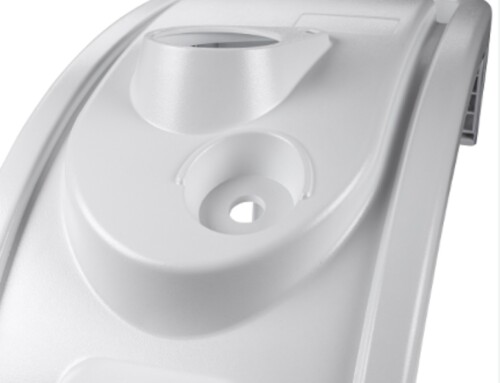Carbon Fiber – The Optimal Material for Drone Shells
To ensure drones have high load-bearing capacity and extended endurance, their shells require high stiffness and low weight. While engineering plastics have been commonly used for drone shells, they are gradually being replaced by carbon fiber composites.
Drones, as high-tech products, are used for aerial photography, image transmission, geographic surveying, agricultural spraying, and mapping, with applications across various fields. Like airplanes, drones rely on lightweight, high-strength materials to perform effectively. The superior properties of carbon fiber, an emerging material, make it ideal for drone manufacturing.

Why Choose Carbon Fiber for Drones?
Drone manufacturing materials are diverse. Early drones primarily used aluminum alloys, with some incorporating titanium alloys or steel. While metals offer high strength, their heavy weight results in low specific strength and stiffness, reducing the drone’s payload capacity. Additionally, metals easily reflect radar signals, creating secondary waves, which is disadvantageous for military applications. Carbon fiber addresses these shortcomings with high specific strength and excellent electromagnetic shielding.
Carbon fiber is lightweight yet strong, with excellent physical and chemical properties. Modern drones, including aerial photography drones, agricultural sprayers, and toy model aircraft, increasingly use this advanced material, gaining widespread popularity.
Performance Comparison
Compared to metals, aluminum alloys are relatively lightweight, with densities ranging from 2.2 to 2.8 g/cm³ depending on alloying elements, and tensile strength around 300 MPa. However, their elastic modulus and stiffness are low. While aluminum is prone to corrosion, aluminum alloys form an oxide layer in air, preventing further corrosion.
Carbon fiber composites, with a density of only 1.6 g/cm³, surpass steel in strength and offer superior seismic resistance, high- and low-temperature durability, and low thermal expansion. Compared to aluminum alloys, carbon fiber is significantly more advantageous.
Manufacturing Advantages
Carbon fiber tubes can be formed through various processes, including filament winding, compression molding, pultrusion, and autoclave molding. Unlike aluminum alloys, carbon fiber enables integral molding, reducing the need for additional components, simplifying structures, and further decreasing weight.
Although carbon fiber is more expensive than aluminum alloys, its cost is becoming more accessible with economic advancements. Using lightweight carbon fiber reduces drone energy consumption, contributing to environmental protection and offering significant long-term economic benefits.
Durability and Safety
The fatigue limit of most metals is 30%–50% of their tensile strength, while carbon fiber composites reach 70%–80%, reducing the risk of sudden failures during use. This enhances safety and extends service life, making carbon fiber the preferred material for modern drones.
Conclusion
With its lightweight nature, high specific stiffness, and strength, carbon fiber composites enable the integral fabrication of various structural shapes. They have become the optimal and irreplaceable material for drone shells in current applications.
| Property | Carbon Fiber Composites | Aluminum Alloys |
|---|---|---|
| Density (g/cm³) | 1.6 | 2.2–2.8 |
| Tensile Strength | Higher than steel | ~300 MPa |
| Elastic Modulus/Stiffness | High | Low |
| Corrosion Resistance | Excellent (low thermal expansion, durable) | Good (forms oxide layer) |
| Fatigue Limit (% of Tensile Strength) | 70%–80% | 30%–50% |




